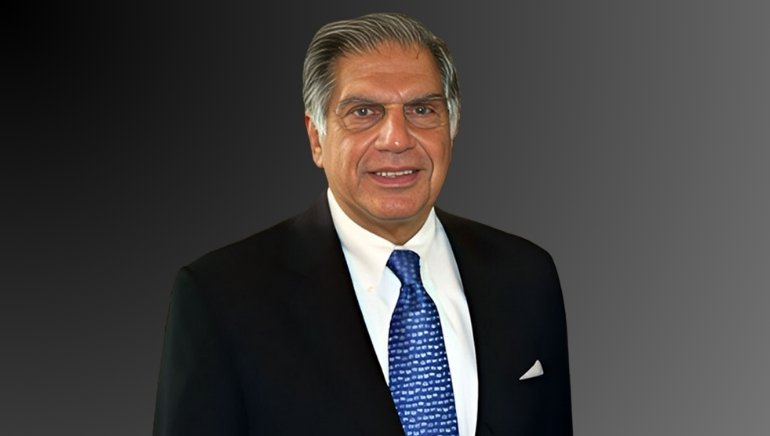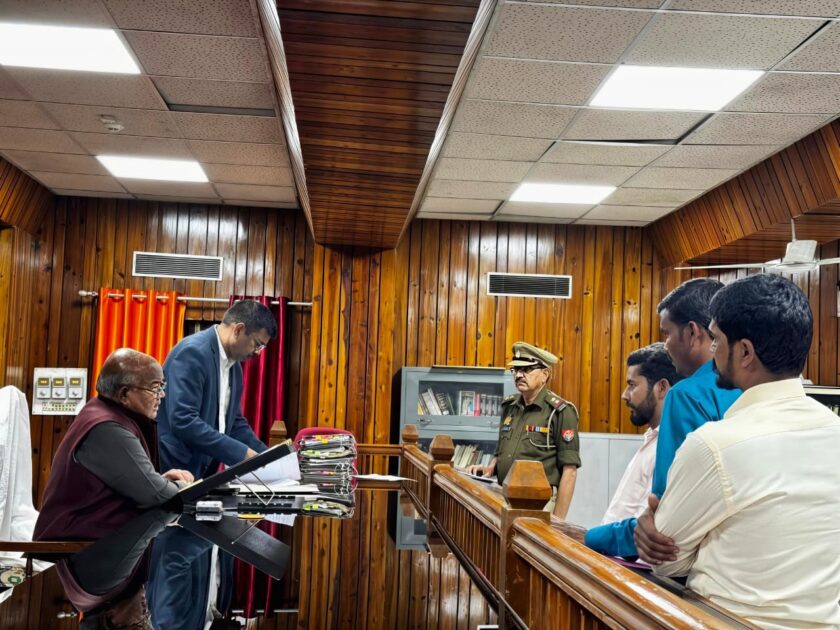Mumbai: Ratan Tata, one of India’s most respected and celebrated industrialists, has left a legacy that extends far beyond his role as the chairman of Tata Group, the country’s largest conglomerate. Born on December 28, 1937, Ratan Tata’s journey is not just about corporate success but about the profound impact he has had on India’s economy, society, and global perception. His leadership transformed Tata Group into a global powerhouse, and his values-based approach to business has left an indelible mark on the corporate world.
Early Life and Entry into Tata Group
Ratan Naval Tata was born into one of India’s wealthiest and most influential families, the Tata family, which had a long history of philanthropy and nation-building. He was raised by his grandmother after his parents separated when he was ten years old, and this phase of his life instilled in him a deep sense of humility and empathy, traits that would define his leadership style.
After completing his schooling in India, Ratan Tata pursued higher education at Cornell University, where he studied architecture and structural engineering. He later completed the Advanced Management Program at Harvard Business School in 1975. His formal education and exposure to the West allowed him to bring a global perspective to his leadership.
Ratan Tata’s entry into Tata Group began at the bottom rung, with him working on the shop floor at Tata Steel in Jamshedpur, learning the nuances of the company’s operations. This decision to work hands-on at one of Tata’s most labor-intensive factories demonstrated his commitment to understanding the company from the ground up, a trait he maintained throughout his career.
Taking Over the Reins: A New Vision
In 1991, Ratan Tata succeeded J.R.D. Tata as the chairman of Tata Group. At the time, the group was a loosely held federation of companies, each operating autonomously. While it was a massive conglomerate, Ratan Tata believed that the group lacked cohesion, direction, and modernity. The Tata Group he inherited was large, but many of its companies were fragmented and lacked the synergies of a unified corporation. His vision was to transform this into a globally competitive, unified entity.
Under his leadership, Tata Group underwent a significant restructuring process. He worked relentlessly to bring the various group companies under one umbrella, emphasizing a strong brand identity, technological advancement, and a customer-centric approach. He also focused on improving governance standards, infusing professionalism, and ensuring that Tata companies adhered to a higher level of transparency.
Despite facing resistance from old-guard leaders within the company, Tata persisted with his reforms, showing remarkable determination. His leadership marked the beginning of Tata Group’s global expansion, a hallmark of his tenure.
Globalization of Tata Group
One of Ratan Tata’s most significant contributions was his emphasis on global expansion. Under his leadership, Tata Group ventured beyond Indian shores and made a series of high-profile acquisitions that elevated the company’s global standing.
- Tata Tea’s Acquisition of Tetley (2000): This acquisition was one of the first major steps in Tata’s global journey. At the time, it was the largest takeover by an Indian company of a foreign firm. Tetley’s acquisition helped Tata Tea (now Tata Global Beverages) gain access to global markets and distribution networks, making it a significant player in the global tea industry.
- Tata Motors’ Acquisition of Jaguar Land Rover (2008): One of Ratan Tata’s most iconic moves was the acquisition of British luxury car brands Jaguar and Land Rover. The deal, valued at $2.3 billion, was seen as a bold gamble, especially given the economic downturn at the time. However, Ratan Tata’s confidence in the long-term potential of the brands paid off, as Jaguar Land Rover turned profitable under Tata’s ownership, contributing significantly to Tata Motors’ revenue.
- Tata Steel’s Acquisition of Corus (2007): Another landmark acquisition was Tata Steel’s purchase of British steelmaker Corus for $12 billion, making Tata Steel one of the world’s largest steel producers. This move highlighted Ratan Tata’s ambition to position Tata Group as a global leader in key industries.
These acquisitions showcased Tata’s bold vision and his belief that Indian companies could compete on the global stage. They also transformed Tata Group into an international conglomerate, with over 60% of its revenue now coming from outside India.
The People’s Car: Tata Nano
Ratan Tata’s legacy is not just about corporate takeovers and profitability but also about his desire to make a difference in the lives of ordinary people. This was most evident in his ambitious project to develop the Tata Nano, the world’s most affordable car.
Launched in 2008, the Tata Nano was Ratan Tata’s brainchild, born out of his vision to provide an affordable, safe, and reliable vehicle for the common man. His motivation for the project came after seeing families of four riding precariously on two-wheelers, and he wanted to offer them a safer alternative.
The Nano was a marvel of cost-effective engineering, priced initially at just ₹1 lakh (approximately $2,000). Although the car did not achieve commercial success as expected, it remains an example of Tata’s commitment to innovation and social responsibility. The Nano project underscored his belief in using technology and business to improve people’s lives, making mobility accessible to millions who couldn’t afford traditional cars.

Philanthropy and Nation-Building
The Tata Group, under Ratan Tata’s leadership, has always been synonymous with philanthropy and nation-building, a legacy inherited from the group’s founders. Ratan Tata continued this tradition by prioritizing corporate social responsibility and ensuring that Tata companies contributed to the betterment of society.
Ratan Tata has been deeply involved in philanthropy, both personally and through Tata Trusts, which control a significant portion of Tata Group’s wealth. His philanthropic efforts have spanned education, healthcare, rural development, and more. Notable initiatives include:
- Tata Education and Development Trust: Ratan Tata played a key role in supporting educational institutions globally. In 2010, the trust donated $50 million to Cornell University for student scholarships. Tata also contributed significantly to Harvard Business School and other educational institutions.
- Healthcare and Disaster Relief: Tata Group has been at the forefront of providing relief during natural disasters and health crises. Under Ratan Tata’s leadership, the company made significant contributions to relief efforts for the Indian Ocean tsunami in 2004, the 2008 Mumbai terrorist attacks, and more recently, the COVID-19 pandemic.
His personal commitment to philanthropy extends beyond monetary donations. Ratan Tata has often spoken about his desire to help build a better society, with his approach to business driven by values and a sense of responsibility toward the less fortunate.
A Leader of Integrity and Humility
Ratan Tata’s leadership style has been characterized by his humility, integrity, and quiet determination. Despite being one of India’s most powerful business leaders, Tata has always maintained a low profile, avoiding the media spotlight and choosing to lead by example.
Throughout his career, Ratan Tata demonstrated that success could be achieved without compromising on ethics. The Tata Group, under his leadership, became a beacon of corporate governance, adhering to high standards of ethics and transparency. This is exemplified by the fact that Tata Group has remained largely free from scandals or controversies, despite its vast business empire.
Tata’s integrity was perhaps best demonstrated during his handling of the Tata–Singur controversy. The Nano project faced a major setback when political protests over land acquisition in West Bengal forced Tata Motors to relocate its factory from Singur to Gujarat. While the situation could have escalated, Ratan Tata handled it with grace, ensuring the company’s interests while respecting the concerns of the local community.
A Continuing Influence
Although Ratan Tata stepped down as chairman of Tata Sons in 2012, his influence on the group and Indian industry continues. His successors, including Cyrus Mistry and Natarajan Chandrasekaran, have acknowledged his guidance and support. Even in his retirement, Ratan Tata remains an active voice in business and philanthropy, offering mentorship and advice to young entrepreneurs.
In recent years, Tata has taken a keen interest in startups and new-age businesses, investing in companies such as Ola, Paytm, and Snapdeal. His belief in fostering innovation and entrepreneurship continues to inspire the next generation of Indian business leaders.
A legacy unmatched
Ratan Tata’s legacy is not just one of business success but of values, ethics, and nation-building. He transformed Tata Group into a global conglomerate while maintaining the company’s commitment to social responsibility. His leadership, characterized by humility, integrity, and a deep sense of purpose, has left an indelible mark on Indian industry and society.
More than just a business leader, Ratan Tata has become a symbol of what it means to lead with purpose and vision, ensuring that the wealth generated by Tata Group benefits not just shareholders but society at large. His legacy will continue to inspire.









